Zagreb Mayor Tomislav Tomašević Announces New Model For Appointment of School Boards
ZAGREB, 3 Aug, 2021 - Zagreb Mayor Tomislav Tomašević announced on Tuesday that next Monday, applications would be invited for the appointment of members of school boards, with around 400 members to be selected, plus 200 who are representatives of local government units.
Speaking at a news conference, Tomašević said that under the new model, of the three school board members who are appointed as representatives of schools' founder, namely the City of Zagreb, one would be chosen from among representatives of local government bodies and two would be selected in an open competition.
Around 400 school board members will be selected in an open competition, around 200 will be nominated by heads of city district councils.
The boards of primary and secondary schools whose founders are local government units each have seven members, of whom three have so far been appointed exclusively by a decision by the mayor.
The Večernji List daily recently reported that the appointment of some of the school board members in an open competition would be introduced by Zagreb and Split, whose mayors, Tomašević and Ivica Puljak respectively, have said the new model is aimed at depoliticising educational institutions.
Tomašević today also noted that fees for members of school boards as well as for members of the management boards of city-owned kindergartens and cultural institutions would be cut.
Amendment of criteria on lease of city premises
Speaking of waste management in Zagreb, Tomašević said at today's news conference that the situation in Zagreb was critical regarding the disposal of bio-waste and bulky waste.
A new public procurement procedure has been launched for the disposal of bio-waste while the public procurement procedure for the disposal of bulky waste is under way, he said.
The mayor of Zagreb also announced changes to criteria for the lease of city-owned premises, noting that by raising prices of lease, which are currently very low, the city's revenue could be increased.
"I do not see any logic in leasing commercial businesses that earn millions in revenue spaces of several hundred square metres at a price of several thousand kuna," he said.
For more about politics in Croatia, follow TCN's dedicated page.
Zagreb Mayor Tomislav Tomašević Says Owes No One Anything, Has Free Hand
ZAGREB, 13 July, 2021 - Zagreb Mayor Tomislav Tomašević said on Monday he had not promised anyone any position in the city nor owned anyone anything, adding that he had a free hand to make decisions he considered to be in the public interest.
"That's how I will act until the end of my term," he said on RTL television.
Tomašević said he was confident the two complaints filed against him with the Conflict of Interest Commission during his first month in office would be dismissed.
Regarding the appointment of Tomislav Lauc to the Srebrnjak Hospital Steering Council, Tomašević said he had been "one of 1,500 contributors" to his campaign and that if the appointment of any of them "to one of the 340 institutions and steering councils in the City of Zagreb is a conflict of interest, then we have a big problem."
He said that if they were experts, the fact that they had been contributors should not disqualify them from being appointed.
Tomašević said the Srebrnjak Hospital Steering Council was not the management, that the hospital director was selected in a public call, and that the director was an employee, whereas the people on the Steering Council were not.
He said the decision on the hospital's new director was up to the Steering Council, not him.
Asked if, after one month in office, he felt that he had taken over the running of the city or was still in "hostile surroundings," Tomašević said a large number of people in the city administration was willing to cooperate and that, "naturally, it will take time to win their trust or not win it."
He reiterated that of the 27 city office heads appointed by his predecessor, ten had resigned and that the offices would be reduced to 16. The heads of the new offices will be selected in public calls, he said.
"We'll appoint the best people. Whether they are members of a party, mine, someone else's or no one's, is unimportant. There will be no faking, they will be real public calls."
Tomašević said the city office for war veterans was not abolished and that it would be part of a new office for protection, health, veterans and persons with disabilities.
He said he was sorry that Damir Vanđelić was resigning as head of the post-earthquake Reconstruction Fund because "we have just established a good dynamic, the (Construction) Ministry, the Fund and the City of Zagreb."
He said a location had been found for construction waste disposal, and reiterated that he hoped "reconstruction will finally begin."
Asked if the city would be able to cover 20% of the reconstruction costs and whether a recently taken HRK 400 million loan would suffice until the end of the year, the mayor said there was no doubt about that and that the loan was "just for liquidity."
He added, however, that "a more serious refinancing of the debt of Zagreb and (utility conglomerate) Holding will ne necessary. We are talking about it with banks and the state."
For more about politics in Croatia, follow TCN's dedicated page.
Ending Segregated Education in Vukovar? Mayor Ivan Penava Announced an Idea
June 25, 2021 - Is there any possibility of ending segregated education in Vukovar? Mayor Ivan Penava announced Serbian and Croatian education could merge in school and kindergarten levels, but more details are yet to be revealed.
The start of the week saw interesting news that surprised many. As reported by N1, Ivan Penava, the mayor of Vukovar, announced Croatian and Serbian classes and kindergartens could merge together.
Vukovar, often referred to in Croatia as the „Hero City“ for the heavy blow it suffered in the 90s war Croatians refer to as Homeland War, still has a lot of ruins as memories of that ugly past. In the light of national tensions among Serbs and Croats, the segregation of kindergartens and different shifts in schools for Serbian and Croatian classes seem to be a solution to keep the peace.
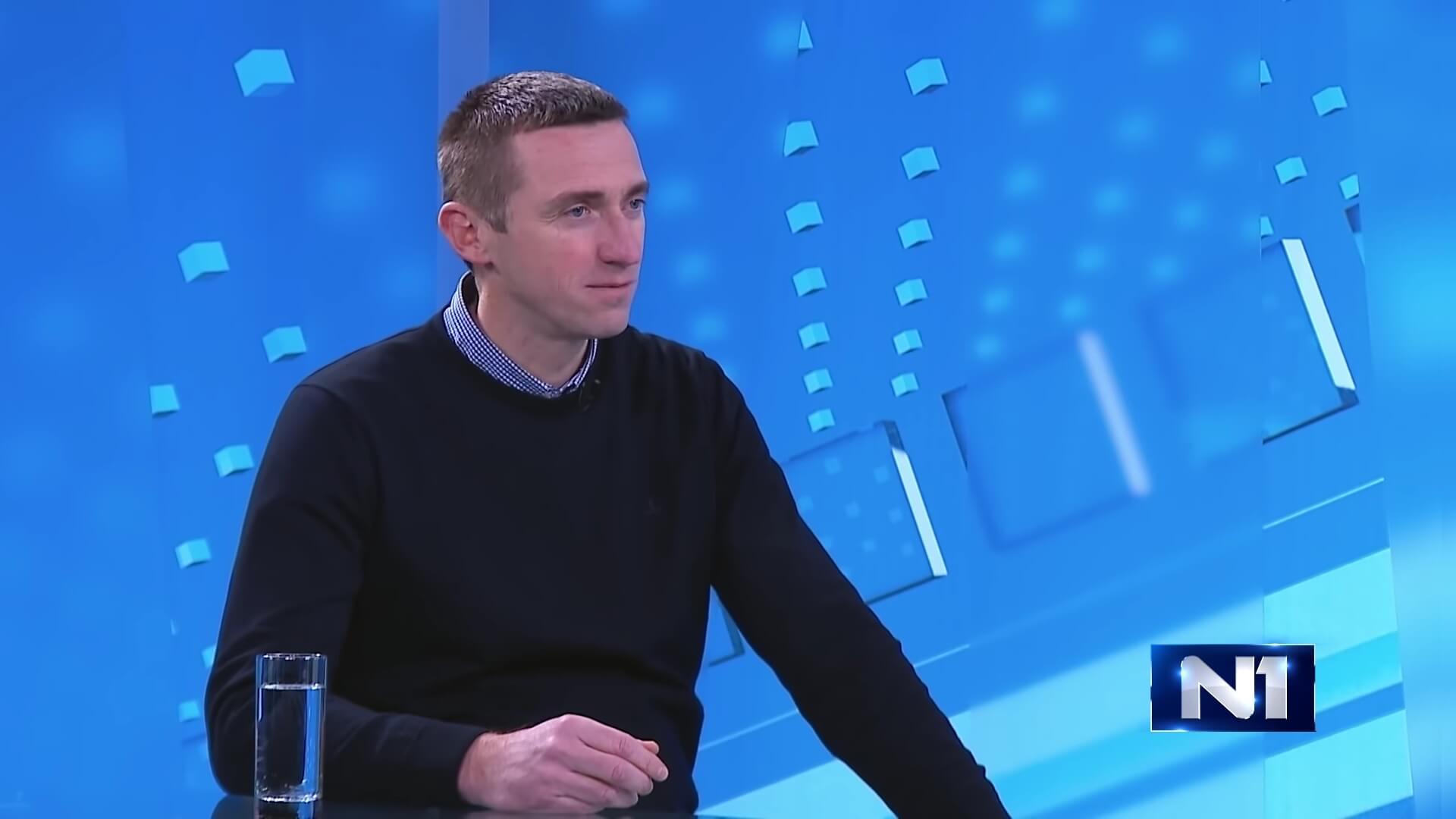
screenshot/ N1
Good idea but more talks needed?
„In Vukovar, parents do not choose the model of education that is imposed by politics, it is nowhere written in public“, said mayor Penava, as reported by N1.
Penava, a former member of the Croatian Democratic Union (HDZ), despite earning a new term in the recent local elections as an independent candidate, enjoyed support from Miroslav Škoro, runner-up candidate for Zagreb mayor elections, and the leader of the Homeland Movement (DP) supports Penava's idea.
„I lived in America for a number of years, in Hungary, I traveled the world... what is the difference between Serbian and Croatian mathematics? Is Argentina in Serbian in the northern hemisphere, and southern in Croatian? I don't get it“, said Škoro adding that segregation was done in malice with a tendency to divide children from the start.
„In Vukovar, the symbol of defense had priorities. Reconstruction of the water tower, and certain moves Penava did well in his last term (he wouldn't win elections if he hasn't), thinks that city needs to move on. I support him 100%“, concluded Škoro.
On the other hand, criticism is erected on national-level politics.
„I don't think that local officials are the ones who need to determine a way in which minority education will be conducted. Political trade is clear here, and I'm glad there is no longer just Serbian-Croatian trading coalition, but also another one“, said Dragana Jecov, a Croatian parliament member from the Independent Democratic Serb Party (SDSS) referring to the accusations of the right-wing that current coalition of HDZ and SDSS and is vile political trade.
Interior Minister Davo Božinović also said that while we need to work on erasing national, social, and political tensions, but this is a question that needs to be discussed more seriously.
Additionally, as N1 reported, the Ministry of Education pointed out that different models of education for Vukovar schools exist, and parents can choose which they find most suitable.
Accepting national differences or nationalistic uniformity?
Some improvements have indeed been seen in the city infrastructure, but Vukovar still remains a challenging place to live. Partly due to the tough economic situation, but also because of discrepancies among Serbian and Croatian residents. Earlier in June, there was even a violent incident when a 30-year-old Serbian member of the Grobari football fan group physically attacked a Croatian 13-year-old boy in front of a bakery for having a medicine mask with Croatian symbols.
„Sadly, this kind of thing happened too long in Vukovar, where people attack each other because of national disputes. Media aren't even introduced to some of these events. It is spread a lot, as evident by the constant police patrols around Vukovar high-schools where there are always police cars around“, said Vukovar police to Večernji List daily newspaper.
Such incidents, a misfortunate loose ends of the war, also come from the Croatian side. Earlier in May, a group of young men chanted anti-Serb slogans in Borovo Selo (close to Vukovar), a scene of heinous war crimes in the '90s), sparking condemnation from both president Milanović and the Croatian Government.
In that light, integrated schools might finally bring positive changes in regards to tolerance and peaceful life for Vukovar citizens. But again, not everyone sees the glass as half full.
Index.hr columnist Gordan Duhaček agreed in his column that Serbs and Croats don't need to go to separate shifts but warns how Penava isn't the guy that should unite them.
„Penava doesn't want to integrate Vukovar schools and end the troubling segregation in a way to ensure a better future for the whole city, but instead to impose his nationalistic, often anti-Serbian narrative as the official one. Penava wants that Vukovar Serbs bow down to his view of the Croatian state“, wrote Duhaček.
Duhaček also reminded the readership of the attempt and fail of the Danube International school that supposed to integrate pupils of both nations, an idea that spawned 16 years ago. But, the project failed, and Duhaček sees both Penava and SDSS leader Milorad Pupovac not feeling too sad about it.
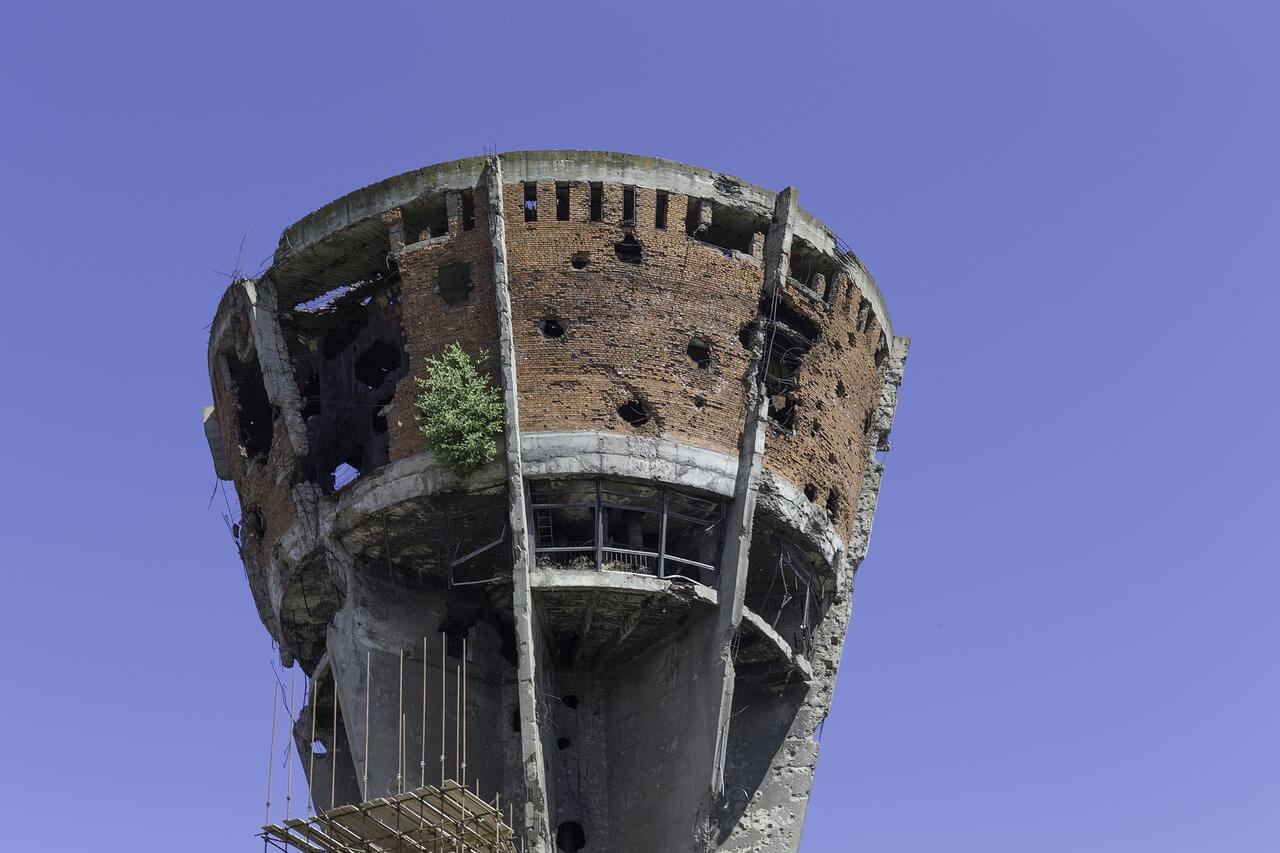
Iconic Vukovar water tower, pixabay
Questions on details
At the end of the week, the situation seems more confusing than clear. Is class integration a good idea? Could it save money for the city financially? What are some actual details of merging Croats and Serbians into one class? Obviously, Škoro is right that 2+2=4 in any math class around the world. But, troubling questions appear in subjects such as language and history. Croats and Serbs sadly have their own, different interpretations of historical facts, particularly when it comes to the last war, and while the speakers of two languages perfectly understand each other, some words do differ, and there is a different accent and spelling in the two formal languages. So, how can these issues be resolved? Would those two subjects remain in different shifts while universal subjects such as biology, math, or physics will listen in one merged classroom? Or will there be a different curriculum that would present both Serbian and Croatian history, Serbian and Croatian literature in that way, making Vukovar pupils more knowledgable in those areas than other pupils in the country?
Or some curriculum consensus on history could be reached, one that would satisfy both the Croatian and Serbian sides and thus truly open a doorway to the better understandings of the two nations in the future in perhaps the most nationally torn city in Croatia?
Obviously, Vukovar city authorities have some tensions with SDSS, but the city also has an expert associate for the development of civil society and national minorities, Siniša Mitrović in one of the City's departments. Did Mitrović manage to gain input from the Serbian minority in Vukovar about this merge? And how fast could the whole thing be realized? This autumn or maybe a bit later?
These are important and interesting questions that can only be answered either by mayor Penava himself or perhaps Josip Paloš, the director of the Vukovar City Education Department.
„Mayor Penava is in a lot of meetings and on fields, and his schedule is full. We will sadly not be able to answer you by your Friday deadline, but we will contact you at the earliest convenience“, said the lady at the Vukovar City PR service when I called them (and E-mailed) with a wish to arrange and conduct a brief phone interview.
While this article may present the current issues surrounding segregated education in Vukovar, this TCN reporter hopes mayor Penava will share more details about his plan on ending segregation in Vukovar schools and kindergarten with joint classes. If done right, this move can indeed be the way to a better, more peaceful future for Vukovar citizens.
Learn more about Vukovar on our TC page.
For more about education in Croatia, follow TCN's dedicated page.
Možemo!, SDP Sign Agreement For Zagreb City Assembly
ZAGREB, 16 June, 2021 - Zagreb Mayor Tomislav Tomašević and Social Democratic Party (SDP) president Peđa Grbin said on Wednesday that Tomašević's Možemo! platform and the SDP had signed a coalition agreement for the City Assembly and that its chair would be from the SDP.
The agreement contains 28 programme goals, including social and housing policies, environmental protection, waste management, water supply and drainage, and sustainable transport. culture, education,
Speaking to the press, Tomašević highlighted stepping the post-earthquake reconstruction of public and private buildings, reducing the number of city offices, a more transparent budget, and digitalising the city's administration and companies.
He said the majority in the City Assembly would have 28 deputies, that Možemo! and its partners would chair 14 of the 18 committees, and that Možemo! and the SDP had agreed to annually evaluate the realisation of the programme goals.
Tomašević said the Možemo! and SDP programmes were highly compatible and that he expected good cooperation as Zagreb needed a stable majority given all the challenges, adding that the City Assembly would be inaugurated tomorrow.
Grbin: The agreement is a pledge for the future
Grbin said the SDP Presidency's candidate for the assembly chairman was Joško Klisović, who had been the party's mayoral candidate.
He said that Zagreb's many problems had to be dealt with right away, adding that they could not be solved if the mayor's proposals did not have firm support in the City Assembly.
Grbin said the recent talks between the SDP and Možemo! had been "unbelievably constructive" and that their programmes were "very complementary and that's why we found a common ground on what our priorities will be."
As for goals of special importance to the SDP, he mentioned the introduction of a city treasury and an Internet platform to enable anyone noticing corruption in the work of the City Assembly to report it.
Grbin said today's agreement was a pledge for the functioning of Zagreb that would ensure the city's transformation as the SDP and Možemo! had announced during their mayoral election campaigns.
For more about politics in Croatia, follow TCN's dedicated page.
Tomislav Tomašević: Decision on Zagreb Holding Appointments According to Law
ZAGREB, 16 June, 2021 - Zagreb Mayor Tomislav Tomašević said on Wednesday that the decision on new management and supervisory boards in the Zagreb Holding utility company was legally valid and in accordance with the law on local and regional government and the Companies' Act.
The Conflict of Interest Commission has launched a case against Tomašević, the commission's president Nataša Novaković said on Tuesday, who underscored that the case was opened due to a possible breach of Article 15 of the Conflict of Interest Act, after staff were appointed in Zagreb Holding contrary to normal practice.
Tomašević noted that the decision has already been registered in the Commercial Court register.
"With reference to launching the procedure before the Conflict of Interest Commission for an alleged breach of procedure, we assessed that the situation in Zagreb Holding warranted immediate action and so we decided to adopt decisions according to valid laws and the usual practice. We need to underline an additional circumstance, that until the representative body is constituted, it cannot propose new members to management and supervisory boards," Tomašević said in a press release.
The mayor's office recalled the Conflict of Interest Commission's opinion in 2013 in which it notes that "in cases where collision between the provisions of Article 15, Par. 2 of the Conflict of Interest Act and the provisions of Article 48 of the Local and Regional Self-Government Act occur, the provisions of the law that enter into force later are applied - lex posterior derogat legi priori - hence the provisions of Article 48 of the Local and Regional Self-Government Act."
Based on that article, mayors and county prefects appoint and relieve representatives of local government in local companies in which the local government holds a stake or ownership shares.
After the signing of a coalition agreement between Tomašević's We Can! party and the Social Democratic Party (SDP), SDP leader Peđa Grbin said that the Conflict of Interest Commission had reacted to an article in the law that until yesterday it had called to be erased, considering that the 2012 law on local government regulated the issue of appointing members to management and supervisory boards in companies owned by local government in a different way.
"With due respect to the Commission and to the excellent work it does in numerous spheres, this isn't its duty but that of the legislator," said Grbin, who called on the government to send amendments to the laws to parliament as soon as possible.
"I expect the government to forward amendments to the law on local government or to the law on the conflict of interest as soon as possible so that this issue is absolutely clear and unambiguous and to define how management and supervisory boards in companies in local government are to be appointed," added Grbin.
He urged that the amendment be brought urgently as this same situation could occur in other cities around the country and that a broad consensus should be reached on this matter.
For more about politics in Croatia, follow TCN's dedicated page.
GONG: "Tomislav Tomašević Betrayed Pre-Election Promises"
ZAGREB, 16 June, 2021 - The GONG NGO said on Wednesday that the newly-elected Zagreb Mayor Tomislav Tomašević had betrayed his pre-election promises by appointing members of the Management Board of the Zagreb Holding utility conglomerate without competitions for the posts.
Appointments made without a competition are not the path citizens chose in the elections, wanting a change in the way Zagreb is run, although it is indisputable that the City and Zagreb Holding (ZGH) have huge debts and that it is necessary to act as soon as possible, GONG said in a press release.
The NGO thinks that Tomašević should have kept the promises and standards announced in the election programme if he really wants to change the model of governing Zagreb and after 20 years of Milan Bandić's rule stop the practice of non-transparent employment.
The new model of governing Zagreb, announced by the Možemo! platform, explicitly stated that members of the management board of Zagreb Holding (and other city companies) would be selected in a public procedure, with the obligatory publication of their programme. This has not been done so far, and public calls will only serve to select additional members of the ZGH management and supervisory boards, GONG said.
For years, GONG has been advocating obligatory public calls for the selection of management staff in public and city companies, with adherence to the principle of competence.
We think that there is a high risk of corruption in public companies which have large budgets and a large number of employees, GONG said.
Explaining on Tuesday why he resorted to the direct appointment in ZGH although in the run-up to the elections he and his party (We Can!) promised the appointment of executives and management members of the city-owned companies only through public calls, Tomašević said that the situation inherited from the previous local government forced them to react quickly and the direct appointment was the most responsible solution.
Commenting on ZGH's loss of HRK 305 million, Tomašević said that the current city administration had two options: to keep the incumbent management that obviously failed to put the situation under control or to dismiss them and leave ZGH without management several months for the duration of the selection procedure.
The mayor elaborated that the minimum number of members of the management and supervisory boards of ZGH were directly appointed and promised the advertisement of public calls for the remaining three members in the management board and the remaining members of the supervisory board.
For more about politics in Croatia, follow TCN's dedicated page.
New Zagreb Mayor Tomislav Tomašević: Sandra Benčić (Mozemo!) On First Moves
June 1, 2021 - With the new Zagreb Mayor Tomislav Tomašević soon coming to the office, Sandra Benčić of the green-left platform Mozemo! (We Can!) spoke to Index.hr about the first moves of the new administration.
Following intense post-first round campaigns in Zagreb for the second round of local elections, Tomislav Tomašević is the new mayor of Zagreb. Additionally, Tomašević's green-left coalition Mozemo! earned 23 seats in the City's assembly, and if the previously announced support of the Social Democratic Party (SDP) that has five, Mozemo! will have the majority in the assembly.
The new mayor is expected to take his seat by the end of this week, and as Index.hr reports, Sandra Benčić, the Mozemo! MP says that ZG Holding chief and directors can be removed from their position immediately.
However, first and foremost, the earthquake damages seem to be taking the lead.
„The most urgent thing is to prepare documentation for the reconstructions of kindergartens, schools, and institutions in the city ownership that were damaged in the earthquake. We have to do that as fast as possible because the deadline to pull money from the EU Solidarity Fund is June 2022. I'm afraid there will be a fiasco regarding how much will the State pull from the fund, but we can only take the money for estates in the city property, and the damaged kindergartens and schools are our priority“, told Benčić for Index.hr
She added that they plan to start an Office for Zagreb Reconstruction and establish mobile teams which will help citizens to fill in documentation and requests for the reconstruction of damaged homes.
Regarding the statement about the fiasco with the State pulling money from Solidarity Fund, the conflict with the government was sparked yesterday when PM Andrej Plenković talked to the press regarding Tomašević's victory. He said he didn't congratulate Tomašević yet, but he will and that he expects good cooperation.
„I see that Mozemo! is paraphrasing my message from 2016 when I said that we are changing Croatian Democratic Union (HDZ) so we can change Croatia. They say they are changing Zagreb to change Croatia. Clearly, they have something against this Croatia“, said Plenković, sparking controversy.
And Benčić is not the one to remain silent on such statements.
„Yes, we do have something against this kind of HDZ and evening HDZ with the State. They are not the State but an interest group that trapped our country. We want to see the country returns to all its citizens and that, of course, hurts them to the level that the prime minister allows himself these kinds of statements which, if they weren't malice, would be at minimal, unsmart“, said Benčić.
With the biggest number of votes in the history of mayoral elections in Zagreb, Benčić continues they are ready to justify this trust, and they start with work immediately.
„We are going with the financial revision of City's administration, restructuring City offices. We will do it step by step and connect offices while ensuring that functions and services need to deliver to the citizens. It should be noted that Zagreb used to have fewer offices, 17 until 2000 and then offices start to grow exponentially, only to put politically suited people to positions and raise their payments“, explained Benčić.
And the new Mayor Tomislav Tomašević also gave an interview on Monday. As Jutarnji List reported, Tomašević also talked about his plans to improve Zagreb and fulfill his promises, particularly with so many earned votes.
„This big trust is also a big responsibility. Citizens can expect that we will lead by example from the start. The city administration and authority will be based on three things: decency, modesty, and being at the citizen's service.
He also added that Mozemo! is considering filing a lawsuit against Miroslav Škoro for the filthy instigating campaign, as Tomašević and many other public figures described it.
„I wouldn't like this to happen to anyone anymore on any other elections in Croatia, regardless are we talking about a candidate from the right, left or center," commented Tomašević.
Although no direct link can be proved at the moment, Škoro's rhetoric could've been the fuel for the attacker that set fire to the Mozemo! election headquarters at Zagreb Contemporary Museum on the election night saying to the gathered that „they are communists“ and how he will „kill them all“, on which T-portal reported.
The elections are over, but will Zagreb continue to celebrate in such a majority as it did on election night? This is something only Tomašević on his new function can answer in the following months and years.
Learn more about Zagreb on our TC page.
For more about politics in Croatia, follow TCN's dedicated page.
Best Zagreb Mayor By Historians: Historians Shouldn't Rate, But Većeslav Holjevac Takes Lead
May 11, 2021 - Ahead of the local elections, following the death of Milan Bandić and troubling issues Zagreb is facing at the moment, TCN reporter Ivor Kruljac wondered who is the best Zagreb mayor by historians.
With the local elections happening in Croatia this Sunday, just as every year, 2021 is no exception, with all eyes directed on Zagreb. This is no surprise, given that, for better or worse, Zagreb is the capital city, the center of politics, culture, science, education, and the spot where Croatians from other smaller towns, villages, etc. come in search of a job and new opportunities. You may not necessarily need to leave the country to leave your dreams, and despite other regions of Croatia slowly but surely developing, Zagreb is still considered by many as the necessary place to go to achieve something.
And this year, the eyes are even watching in even bigger suspense; Milan Bandić, who was the first man of the city for 20 years, passed away in February. The ever-controversial political figure (now replaced by his deputy Jelena Pavičić Vukićević, who also runs in the elections) suspected of corruption, being arrested during his mandate and on several trials, left lots of unresolved issues which the new mayor will have to address in the city's administration. Additionally, the current corona crisis caused some new challenges, and last year's earthquakes and city reconstructions are still a hot political topic among citizens.
Zagreb: History of overcoming the crisis
Challenging circumstances in 2021, no doubt, but certainly nothing Zagreb isn't used to. While settlements on the city's territory date earlier, the first mentions of Zagreb are linked with establishing of Capitol Diocese in 1094. Since then, diseases, earthquakes, floods various wars (WW1 and WW11 included, as well as the 90s war Croatians commonly refer to as the Homeland War), disrupt the peaceful life of Zagreb citizens. The city still stands. But of course, these different troubling contexts were handled not just by citizen's persistence but also by the city's authorities and leaders.
Throughout the turbulent history, Zagreb had, concluding with current deputy Jelena Pavičić Vukičević, a total of 53 mayors. The first one was as, Povijest.hr writes, Janko Kamauf, whose term lasted six years, from May 15, 1851, to 1857. He was a former city judge of Gradec, a title whose authorities basically made him the mayor of Gradec. Following the unification of rival Gradec and Kaptol into one city in 1850, he was elected to be the first leader of a city whose population at the time counted 16,036 people.
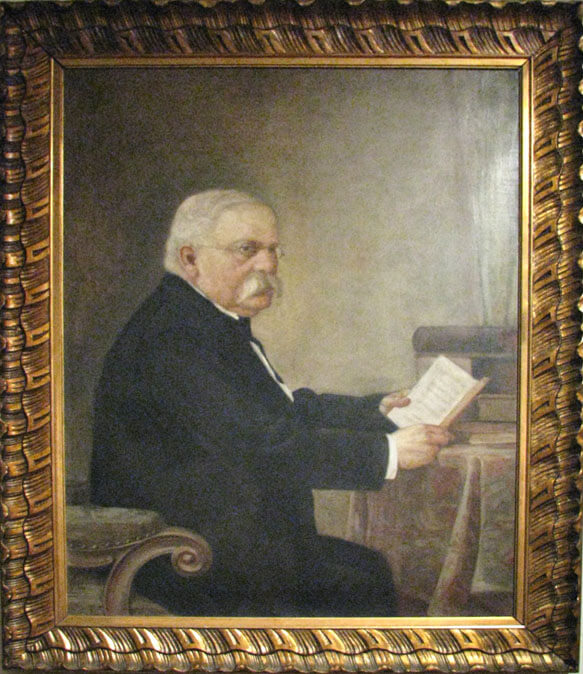
Janko Kamauf painted by Bela Čikoš Sesija, showcased in Zagreb City Museum © Unkown author, Wikipedia
He was the first, but was he the best?
I asked several historians if could they rate and pronounce in their opinion, with regards to the specific contexts, who was the best Zagreb mayor, from Kamauf to Vukičević Pavičić.
Two votes for Većeslav Holjevac!
„I'm not into grading, that's not a historian's task. Our task is to explain and put on the table facts and context of events“, said Ivo Goldstein when I asked him about the best mayor of Zagreb.
Ivo Goldstein may be best known to the Croatian public as a harsh critic of the far-right and the fascist regime of the Independent State of Croatia. As a Historian, he took an interest in various topics related to Croatian history.
At the start of his career, his focus was on Byzantine Empire and Croatian Middle Age History as well as the history of Jews in Croatia. In mid 90's he moved to the various aspects of Croatian history in the 20th century.
He was a professor of various history courses „General History of the Middle Age“ (1984-2003), history of methodology (1991-1996), and many more and today a full-time professor at the Department of History on The Faculty of Humanities and Social Sciences, the University of Zagreb (where he mastered and later completed his Ph.D. thesis at the Faculty of Humanities and Social Sciences, University of Belgrade).
Goldstein's scientific papers received positive acclaim in various countries worldwide, he hosted various projects scientific projects and associations and is very active in Croatian public space when it comes to historical issues that shape the ideas and decisions of current policies in Croatia.
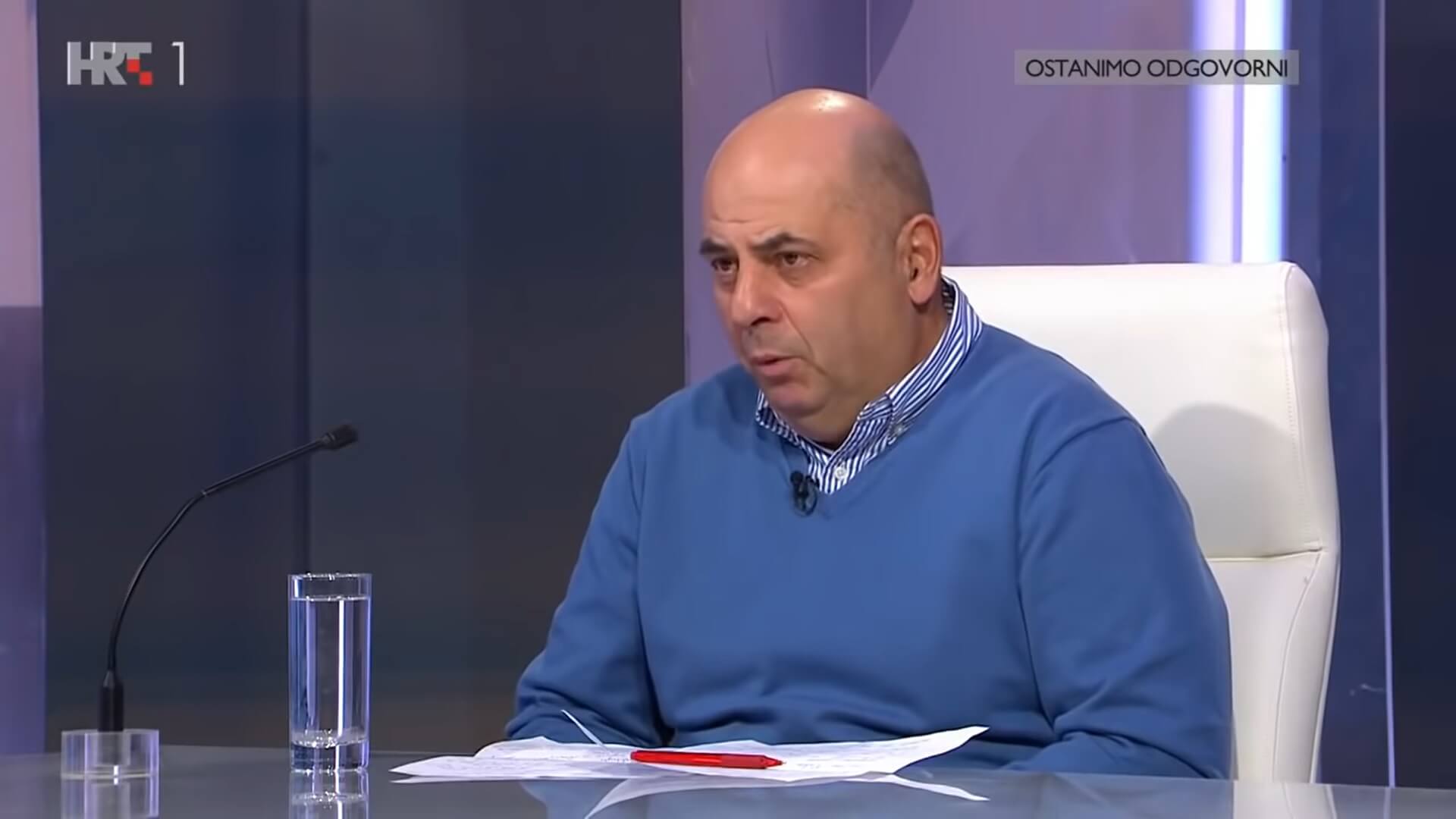 Ivo Goldstein / screenshot HRT Nedjeljom u 2
Ivo Goldstein / screenshot HRT Nedjeljom u 2
Upon explaining the role of historians, professor Goldstein nevertheless didn't mind giving his personal opinion.
„For me, there is no doubt that the best mayor of Zagreb is Većeslav Holjevac“, said Goldstein.
Većeslav Holjevac was the Mayor of Zagreb from 1952-1963 and his eleven-year mandate saw Zagreb develop and spread as the city.
„At that time, Zagreb was the capital city of Socialist Republic of Croatia, which was part of Yugoslavia. Holjevac saw a boost by liberal politics, it was the time of growth and optimism and Holjevac knew how to use it. He was a man of action and used Yugoslavia's opening to the world to Zagreb's benefit“, explained Goldstein.
He added that Holjevac didn't want to be perceived as some sort of transmission of higher state authorities. He didn't hide behind forums and was an independent, free-minded politician, which made him known and beloved among citizens.
„But it made him unloved among the higher power of authority which ended his mandate, although we historically don't know the real reason why Holjevac stopped being mayor“, Goldstein pointed out the mystery which is yet to be cleared up by historians.
The key term of Holjevac's mandate is the General Urban Plan which saw the development of the Most Slobode (Bridge of Freedom), expansion of Zagreb city to south across Sava river, and what today is Novi Zagreb (New Zagreb), as well as building up Zagreb Airport.
„Holjevac knew how to surround himself with good associates who were both dreamers and experts. Holjevac also engaged himself in the projects and his associates felt safe and that he got their back“, explained Goldstein.
The best example of that boldness and visionary approach can be seen in the Zagreb fair which was at that time located at the place of today's Student Centre in Savska.
„The fair needed expansion but was surrounded by railroad tracks everywhere, and the question was how to expand it. There were several options, but Holjevac decided to take it across the Sava river, and it happened. It was quickly constructed, and the first fair on newly build location was the Autumn fair in 1956. and it was the biggest event of its kind in the world back then“, said Goldstein, gladly adding he even had a chance to meet Holjevac as a 12-year-old since the mayor knew his father, an established Croatian intellectual, and politician, Slavko Goldstein.
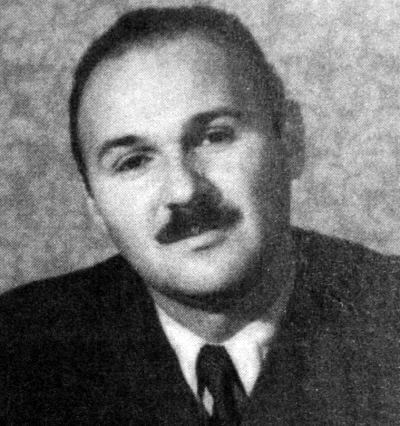
Većeslav Holjevac © Udruga Kameleon / Wikipedia
Hrvoje Klasić was professionally most occupied by Većeslav Holjevac, so he also shares Goldstein's opinion about Većeslav Holjevac.
„In a sentence: Zagreb has never been more developed as it was after Holjevac“, summarized Klasić.
Hrvoje Klasić graduated in 1997 from the Department of History, Faculty of Humanities and Social Sciences at the University of Zagreb. At the same University, he defended his dissertation entitled “1968 in Yugoslavia. Socio-economic changes in an international context”. Since 2003 he has been employed as a professor at the same Faculty and University.
Today, he holds a number of courses related to the world and national history of the 20th century.
Hrvoje Klasić also won the Annual Award of the Association of University Teachers and other Scholars in Zagreb in 2006. That same year he won the Annual Award of Sisak City for the Book „Croatian Spring in Sisak”. He is the author of 3 more books and the author of two documentary series „Croatian Spring“, and “The Independent State of Croatia” produced by Croatian Television. In 2017 The Serb National Council in Croatia gave him an award for the improvement of Croatian-Serbian relations. In 2019 he won the Award for the promotion of peacebuilding, nonviolence, and human rights.
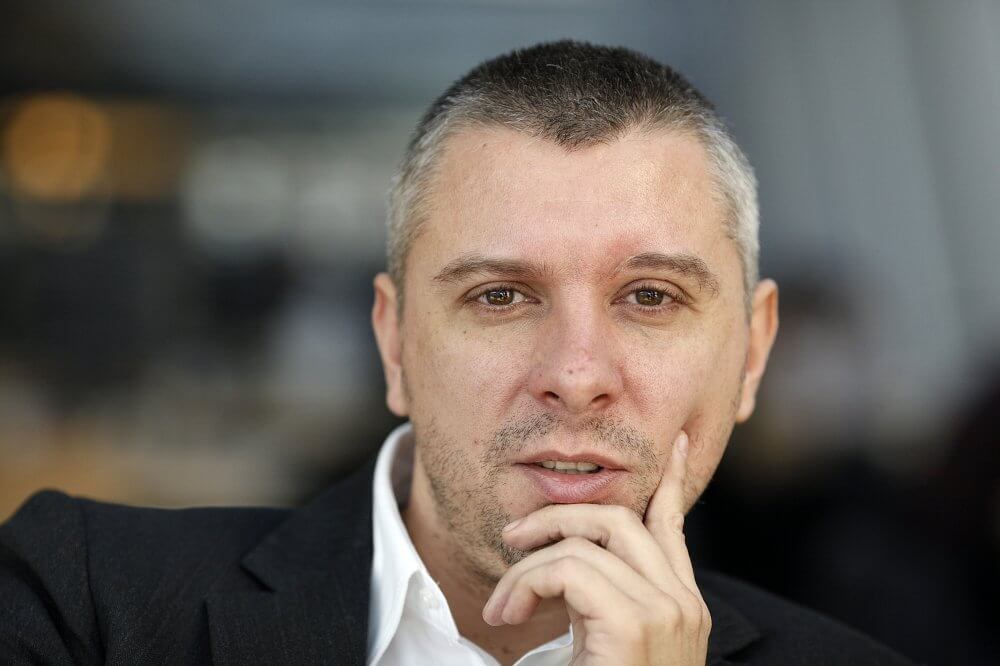
Hrvoje klasić © Hrvoje Klasić
„Most people don't know that Holjevac technically wasn't a mayor, rather he was a president of the City's National Council“, explained Klasić the precision of the functions in the previous Yugoslavian state. He added that while his term lasted from 1952-1963, that is only partially true because he was first appointed to lead Zagreb in 1945.
„In 1945, he was named the city commander who was a military function but he was also in charge of food, traffic, working with several refugees after World War 2 until he gave the control over to civilian bodies“, describes Klasić.
Holjevac then moved on to be the minister of work and traffic in the Social Federal Republic of Croatia. However, at that time, Yugoslavia was going under a change in its political institutions by the self-governing policy which went under parole „factories to workers, cities to citizens“, and as a result, Holjevac 's ministry was shut down. His return to the top position in Zagreb happened without him even knowing.
„As part of self-governing, the Communist Party in Zagreb searched for someone who isn't just going to execute orders from above but instead is an individual that has quality, creativity and will make its own decisions. Holjevac was elected during a meeting he wasn't even present on, and some members of the party were worried is it smart to give Zagreb to a person who is from Karlovac“, said Klasić.
As Goldstein already mentioned, his term lasted over a decade, and Klasić adds that was a very unusual duration at the time.
While Goldstein already mentioned the traffic connections of Zagreb, Klasić said it is very hard to count everything Holjevac built, but he put focus on the industry. Industrial plants of organic-chemical industry, Zagreb heating plant, industrial plants of Pliva pharmaceuticals, Chromos paint company, Kemika, Zvijezda company, Katran, Badel company for alcohol spirits, an ice rink on Šalata, winter pool and gymnastics gyms on Mladost, Yugoton record company, Jadran Film, TV tower on Sljeme, Zagreb drama theatre, an emergency room in Draškovićeva, various elementary and high-schools, and began construction of Vatroslav Lisinski concert hall and more.
„Before Holjevac, there were 40,000 workers in Zagreb. After Holjevac, there was 110,000“, said Klasnić to illustrate the results which made the city the strongest industrial center in Yugoslavia. Apart from industry, Holjevac put a lot of focus on culture and education, as evident by building Workers University Moša Pijade for adult education (today's Public Open University Zagreb) and culture.
Holjevac's „Jump over Sava“ was done on the one hand to prevent interventions in old Zagreb, and on the other, the organizational construction of Novi (New) Zagreb saw the workers live close to the newly built factories.
As Goldstein already referred to Zagreb Fair as perhaps the most significant project of Holjevac's mandate, Klasić added that the unique geopolitical position of Yugoslavia as the bridge between east and west, thanks to the non-aligned movement, made the fair a key place worldwide.
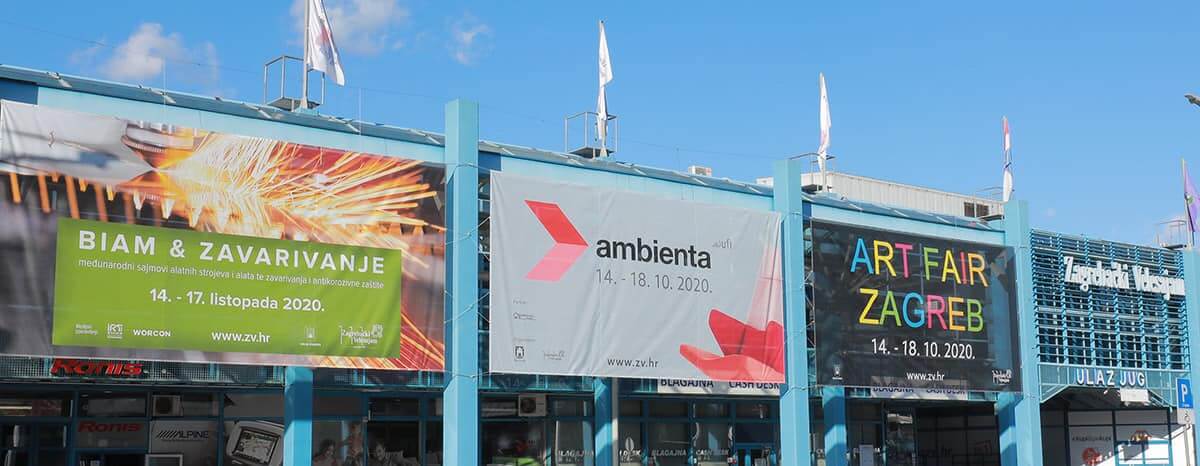
Southern entrance of Zagreb Fair in 2020 © Zagrebački Velesajam
„The fair was not just important for holding exhibitions, but for making deals and signing contracts as well. Given Belgrade was the capital of Yugoslavia, there were pressures to have such a fair there, and there were even boycotts from Belgrade to Zagreba Fair events. However, Holejvac being both persistent and enjoying support by the Yugoslavian president Marshall Josip Broz Tito, managed to keep this significant place in Zagreb“, explained Klasić.
When asked about resentment of other politicians, and the unclear mystery of concluding his mandate, Klasić said he had a chance to look at archives about Holjevac while working on an exhibition about him, and he feels that the situation is much simpler.
„Holjevac basically left due to the same politics that got him to be the mayor in the first place. The Self-Governing model started descending to the lower levels of the system and started searching for creative people. In 1963, a new constitution was brought that further developed the political system to give City Assembly more power accenting the community governing Zagreb. Holjevac's president of City's National Council title has shut down, and the president of Assembly became the first man of Zagreb.
Rotation of politicians as well as limited mandate time was arranged too“, explained Klasić.
He added, however, that it is problematic that an experienced, capable, brave, and brilliant man like Holjevac wasn't put to better use after he stopped being mayor and played bigger roles in Yugoslavian political life.
There isn't the best, only good and bad mayors
Unfortunately, other historians, I contacted (and of course, I couldn't contact every single one, who knows who else might be interested to participate), didn't respond to my inquiry. While Ivo Goldstein explained rating mayors isn't historian's job, Stevo Đurašković, professor at the Faculty of Political Sciences in Zagreb, further elaborated the problem of my question.
„I'm not a fan of such an approach to the topic like it's a miss pageant. In Zagreb's history (as in good portions of cities around the world). There were several great mayors, again, each in its own historical context“, explained Đurašković.
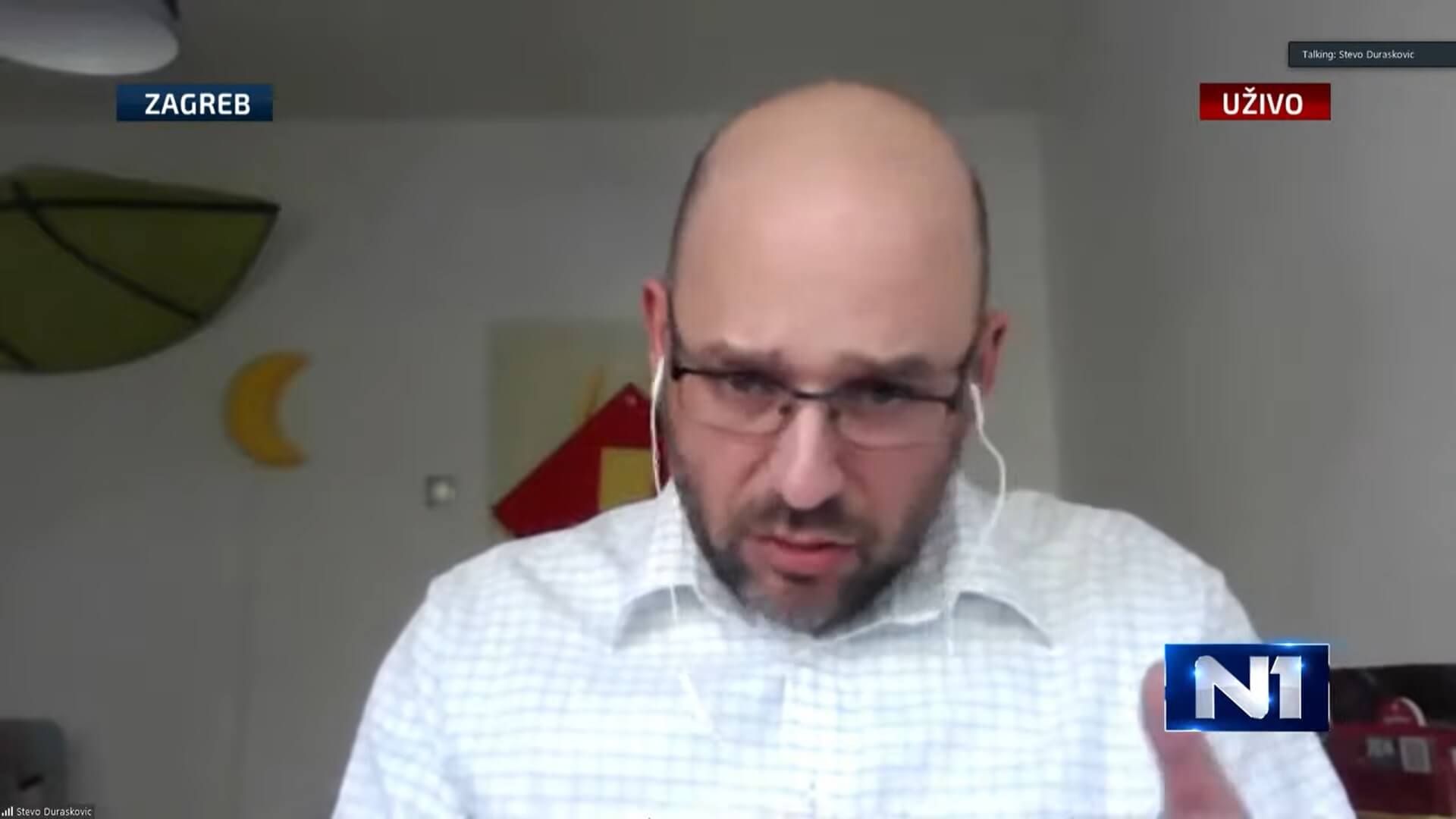
Stevo Đurašković, screenshot / N1
Stevo Đurašković is an Assistant professor at the Faculty of Political Sciences, University of Zagreb, where he teaches courses in politics of history and Croatian history. He received his Ph.D. in Political Science from the Faculty of Social Sciences at the University of Ljubljana and his MA in Central European History from the History Department at the Central European University, Budapest. His research interests include the politics of history, intellectual history, and national identity-building processes in East-Central and Southeastern Europe. Recently he published the book The Politics of History in Croatia and Slovakia in the 1990s (2016). Participated in several international projects, including “Identity Reader: Regional Identity Discourses in Central and Southeast Europe, 1775-1945” (CAS, Sofia). He is a member of the editorial board of the Cultures of History Forum (Imre Kertész Kolleg, University of Jena). In 2009/2010. He was a Ph.D. research fellow at the Faculty of Economic and Social Sciences, Comenius University, Bratislava (CEEPUS grant, Visegrad Fund grant).
In other words, an expert in his respective field with a valid and knowledgeable opinion.
„Milan Amruš and Većeslav Holjevac were great mayors. How to determine if Amruš's development of pre-war Zagreb is greater than Holjevac's post-war development of Zagreb?“ concluded Đurašković his decline to comment who would be the best mayor of Zagreb.
Speaking of Amruš, he was Zagreb mayor in two separate mandates, the first one lasting from 1890 to 1892 and the second from 1904 to 1910. Lice Grada reports that some of the accomplishments in Maruš terms include electrification of the city, and building up Munjara Power Plant (in 1906 and 1907). Under Amruš's mandate, the website continues, horse trams were replaced by electric trams in 1909 and new tram lines and the expansion of the previous one from Ilica to Topnička Barracks were constructed. In addition, 1890 saw lower and upper Zagreb connected by a funicular.
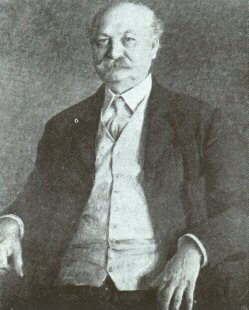
Milan Amruš © Unknown author Wikipedia
Đurašković also added in his decline that Pero Pirker is often „a forgotten mayor“, and Klasić mentioned him as the Holjevac's successor. Mentions of Pirker are also noted on Nacionalne Manjine (National Minorities) site that declared Pirker as a noted Zagreb mayor.
"There is no doubt that Pirker is one of the most capable, most successful, and in its time an extremely popular mayor. But it is stunning that for political reason, considering he was one of the established champions of Croatian Spring in 1972, his work was completely silenced not only until the 1990s but also later“, wrote Goran Beus Richembergh for Nacionalne Manjine.
It's worth noting that the Croatian Spring was a reawakening of national identity which paved the way for the country's independence and the dissolution of Yugoslavia, on which TCN reported on its 50th anniversary earlier this year.
In Pirker's time, the Great flood that sank Zagreb in 1964 was truly the historical challenge of his mandate.
„It was a natural disaster of great extent, and the entire previous state (Yugoslavia) was involved in sanitation and help was arriving from all over the world. But, the biggest responsibility for the coordination of help, sanitation of the damage, taking care of the casualties, and building new homes was carried out by Zagreb's authorities, lead by Pirker who showed to be a skillful manager and successful in various projects“, described Beus Richembergh.
Amruš had the challenge to electrify Zagreb to keep up with other European capitals, Holjevac had the challenge of restoring and developing the city post WW2, and Pirker had the flood.
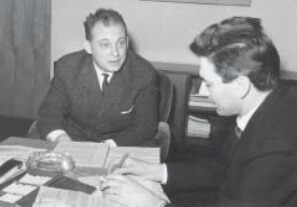
Pero Pirker (on the left) © Croatian Journalist Association / Wikipedia
Both corona and earthquake, as well as the mess suspected to find post-Bandić, are all just another challenge in the history of a town that is used to be challenged and always dancing victory laps.
While Đurašković explained comparisons of what was the most difficult challenge and who was the best mayor make no sense, Goldstein and Klasnić presented their pick. But, as respectable historians they are, they emphasized that it is their opinion and not an empirical fact, even though their arguments are both knowledgable and well explained.
In the end, politics should be about making people's lives better and not about chasing crowns or historical acknowledgments. And as Zagreb really needs a quality leader, the only logical conclusion is: may the best candidate wins, and may purgers recognize the best man or women for Zagreb to once again wave the middle finger to the aftermaths of the recent crisis as it overcomes them.
Learn more about Zagreb on our TC page.
For more about history in Croatia, follow TCN's dedicated page.
Highlights of the Week: 5 Big Events in Croatia from May 3-9, 2021
May 7, 2021 - TCN's regular retrospect of Highlights of the week, through the selection of TCN's reporter Ivor Kruljac.
President Milanović loved by locals in Plaški. Firefighters quickly reacted to the fire in Zagreb recycle yard. Pula celebrated its liberation while Šibenik received new doses of coronavirus vaccines. Dinamo and Hajduk end their match in a tie. Overall another interesting week in Croatia, and here are more details on all highlights.
Highlights of the week: President Milanović loved in Plaški county
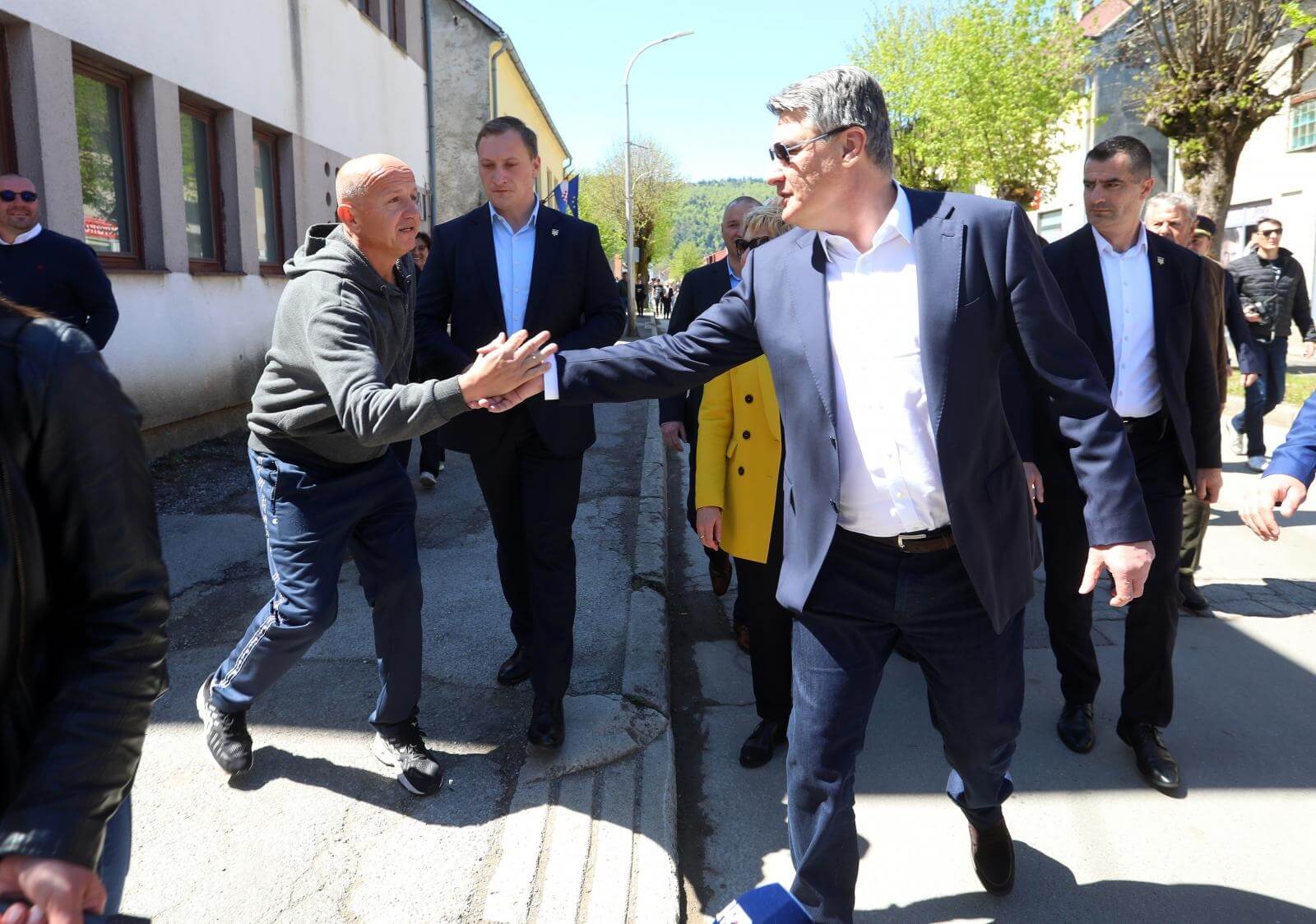
© Kristina Stedul Fabac/ PIXSELL
Croatian president Zoran Milanović visited Plaški county near Ogulin on Tuesday to visit the newly-build Firefighter's home and Plaški Culture Home. The locals welcomed president Milanović with ovations, and many use the opportunity to handshake and take a photo with the president. As Večernji List reports, Milanović took the visit as an opportunity to comment on the hate speech incident at Borovo Selo. He stated that the President of Serbian National Council Milorad Pupovac and Croatian Prime Minister „should use the police, but they don't, they are causing incidents.
Highlights of the Week: Pula celebrating its liberation in WW2
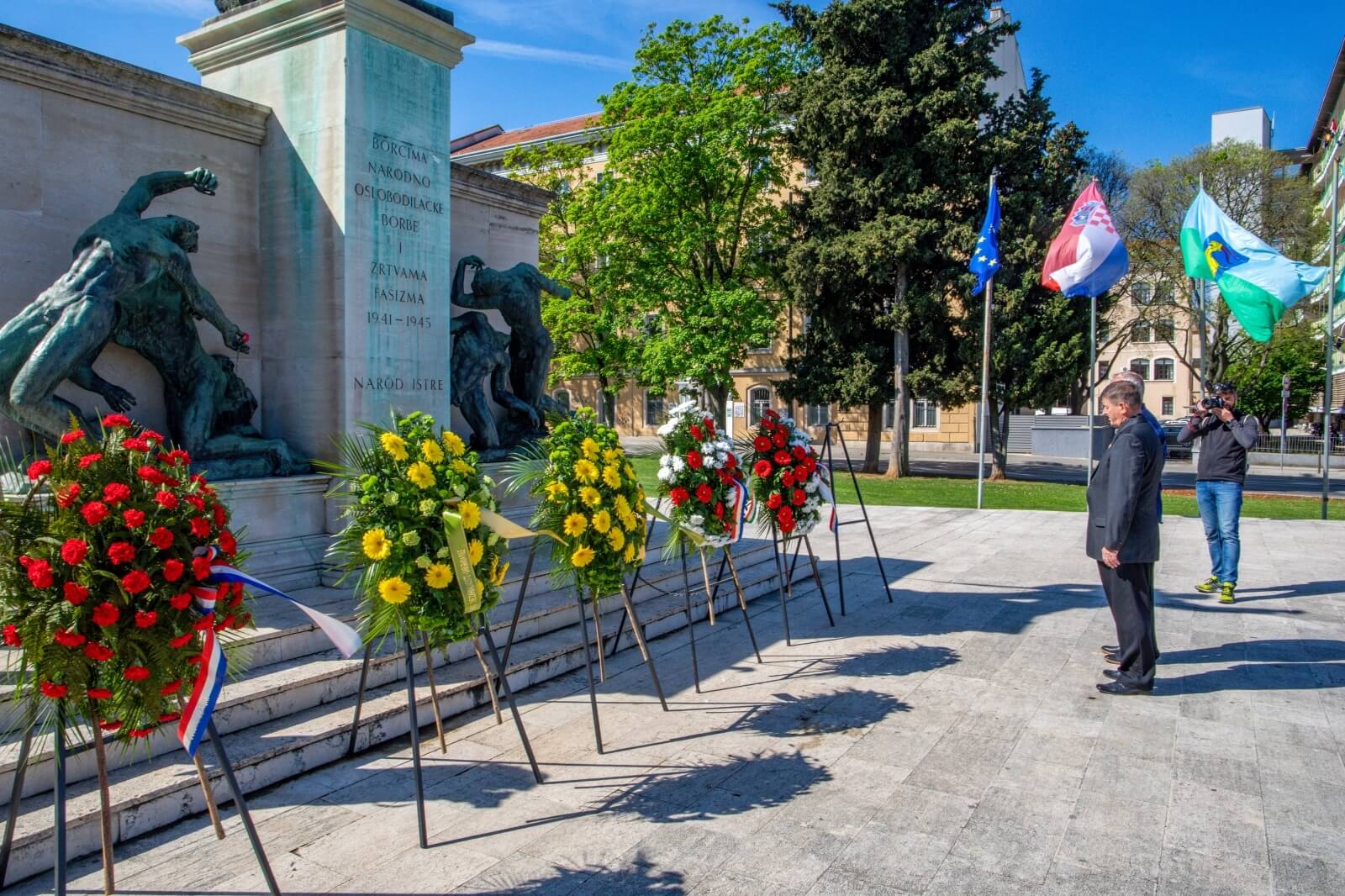
© Srecko Niketic/ PIXSELL
Pula celebrated its annual liberation day and the Pula City Day, marked on May 5. In Tito's park, the traditional commemoration to the fallen WW2 soldiers of Tito's partisan army saw Tiziano Sošić (president of Pula City Council), Elena Puh Belci (vice mayor of Pula), Aleksandar Matić (chief of the City of Pula Office) and Fabrizio Radin (vice-county ruler of Istria county) paid their respects. Representatives of associations of anti-fascist fighters and anti-fascist of the city of Pula were present too.
Highlights of the Week: Dinamo and Hajduk end with an even score 1:1
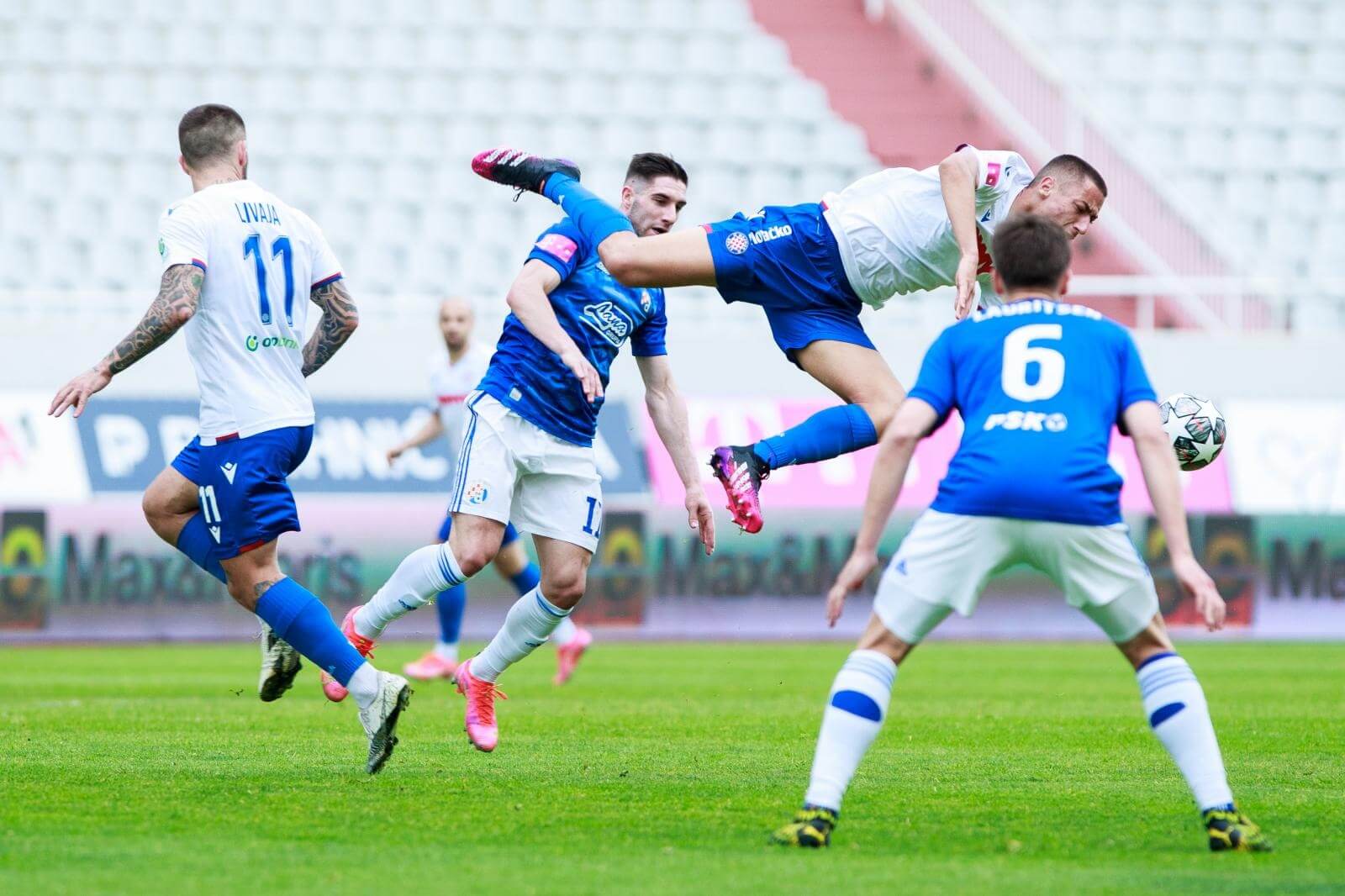
© Milan Sabic/ PIXSELL
Hajduk and Dinamo's eternal opponents played another game at Hajduk's home of Poljud Stadium in Split on Wednesday. The match was the 22nd round in Croatian First League, and fans couldn't wait for it as the game was postponed.
Hajduk opened the match well and had a chance to take the lead in the first 20 seconds. Kačaniklić received an excellent long ball and ran on the right side. He rushed into the penalty area and shot diagonally, but Livaković came out and closed his corner. Dinamo improved and took the lead in the 16th minute with a goal by Majer, and Livaja returned the favor in the 44th minute. Diamantakos hit the crossbar in the final minutes of the match but without success.
After three victories in the previous three clashes with Hajduk this season, Dinamo failed to achieve maximum performance and almost mathematically secured the title but entered the last four rounds with a seven-point advantage over Osijek. The fail happened despite Dinamo facing Hajduk with the strongest possible lineup.
Highlights of the Week: Vaccination in Šibenik continues successfully
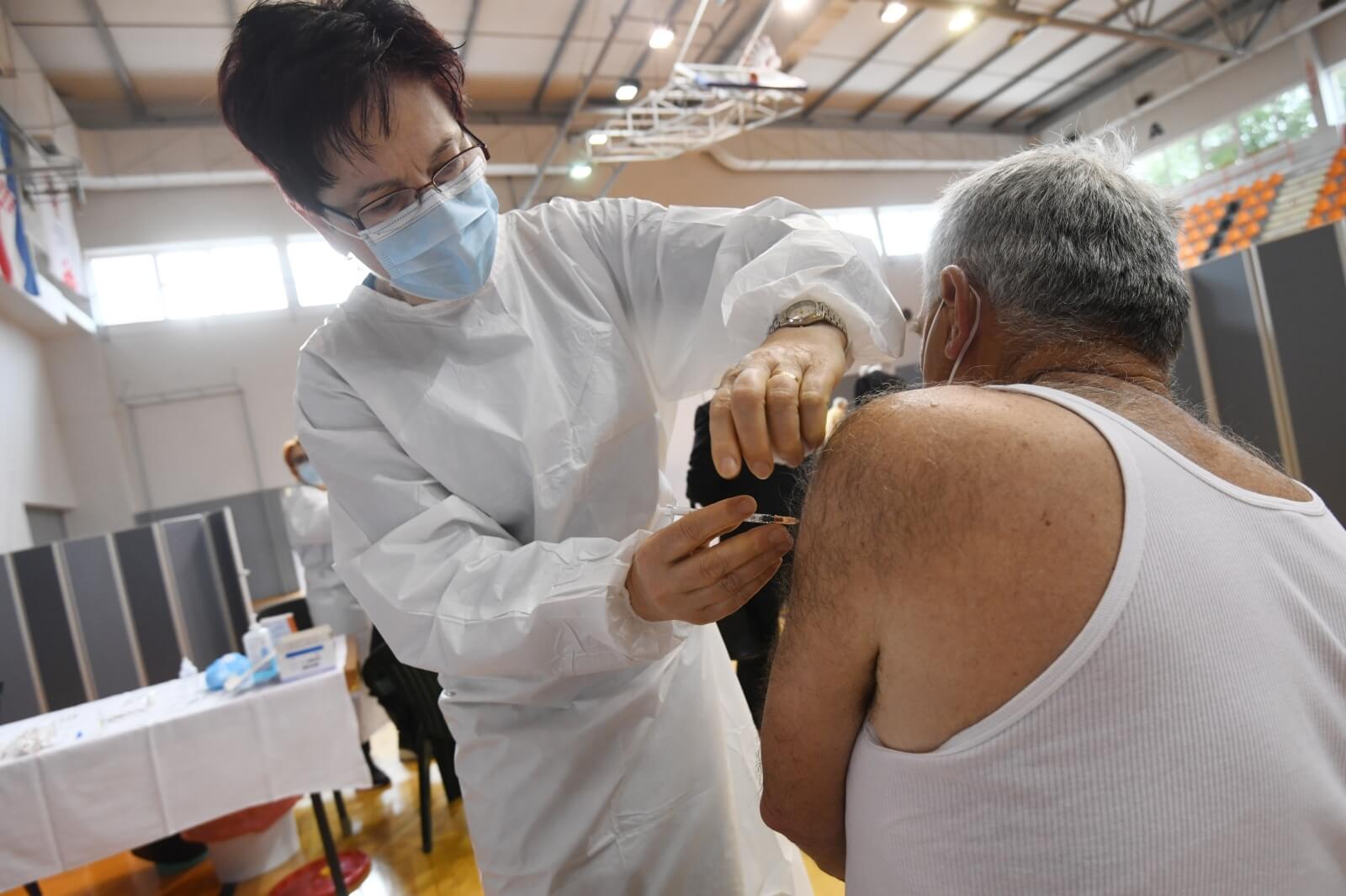
© Hrvoje Jelavic/ PIXSELL
Larger quantities of vaccines came to Šibenik on Friday, allowing vaccination in Baldeki Sports Hall to go without problems for the second day in the row. The vaccination attracts a number of citizens, so the area got quite crowded.
Highlights of the Week: Recycling yard in Zagreb on fire, reasons unclear
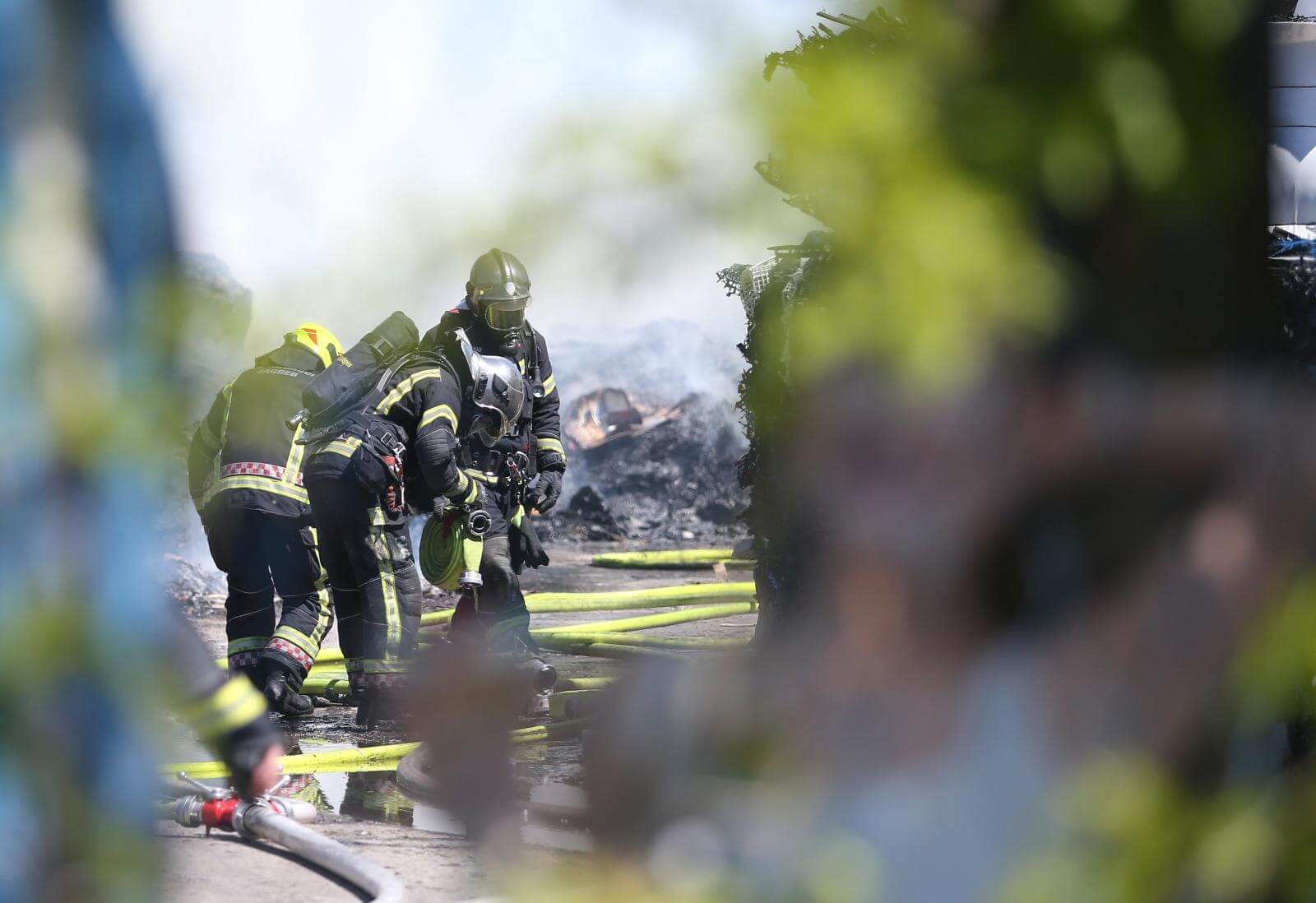
© Matija Habljak/ PIXSELL
Zagreb's recycling yard, located on Sarajevska Cesta in Novi Zagreb, was victimized by fire but quickly localized and put under control on Tuesday. The fire caught four containers, and 21 firefighters with six fire trucks rushed to the field. Police investigated the cause of the fire, but the reason is, for the moment, unknown. Firefighters managed to operate despite the lack of hydrants, and the thick white smoke was noticed by citizens who live in the buildings close to the yard, reported Večernji List.
To learn more about Croatia, have a look at our newly launched TC website.
For more about news in Croatia, follow TCN's dedicated page.
Miroslav Krleža Institute of Lexicography Publishes Book On All things Turopolje
May 7, 2021 - Last month, The Miroslav Krleža Institute of Lexicography had a presentation in Velika Gorica regarding the newly published book on all things Turopolje.
The ever-fascinating region of Turopolje, not so far from Zagreb, as the largest city of the region is Velika Gorica (connected by Zagreb with a regular public service bus) earlier this month good a book that gives an overview of every knowledge collected about Turopolje. Or in a noun: a lexicon.
As The Miroslav Krleža Institute of Lexicography informs on its website, the end of April saw the presentation of the latest work in the edition of the Institute in Velika Gorica.
In respect to the epidemiological measures, the presentation was held among a limited number of journalists and attendees. Nina Obuljen Koržinek, the minister of culture was present along with the mayor of Velika Gorica Krešimir Ačkar, and the head if Miroslav Krleža Insitute, Bruno Kragić. The county ruler of the noble county of Turopolje Mladen Klemenčić was present too and talked about the book. Katja Matković Mikulčić, the headmistress of Velika Gorica City Library and a co-editor of the lexicon, had an opening speech.
The accompanying culture program saw an actor and singer Adam Končić recite poems by Krleža (a famous Croatian writer, poet, publicist, and encyclopedist the Institute was named after) and pupils from Franje Lučić Art School that sing with the back-up of Krešimir Starčević that followed the notes of a famous conductor from Turopolje Franjo Lučić (the inspiration for the name of the art school).
As usual, the Institute was determined to gather as a wider circle of associates as possible, especially the authors. Some of the authors are individuals from heritage, educational, and cultural institutions, but researchers from specific scientific areas and noted publicists contributed to the book as well.
„The project started with the overwhelming support of the City of Velika Gorica, the central administration unit of Turopolje, and the cooperation contract was signed in 2018. With its concept and graphics, this lexicon continues the previous editions of the Lexicography Institute, which focuses on individual Croatian regions (Istria, Croatian Zagorje) or towns (Zagreb)“, the Institute's website quotes the foreword of the book.
When it comes to history, science, and art, museums are great institutions to learn more. You can learn more about museums in Croatia on our TC page.
For more about science in Croatia, follow TCN's dedicated page.


